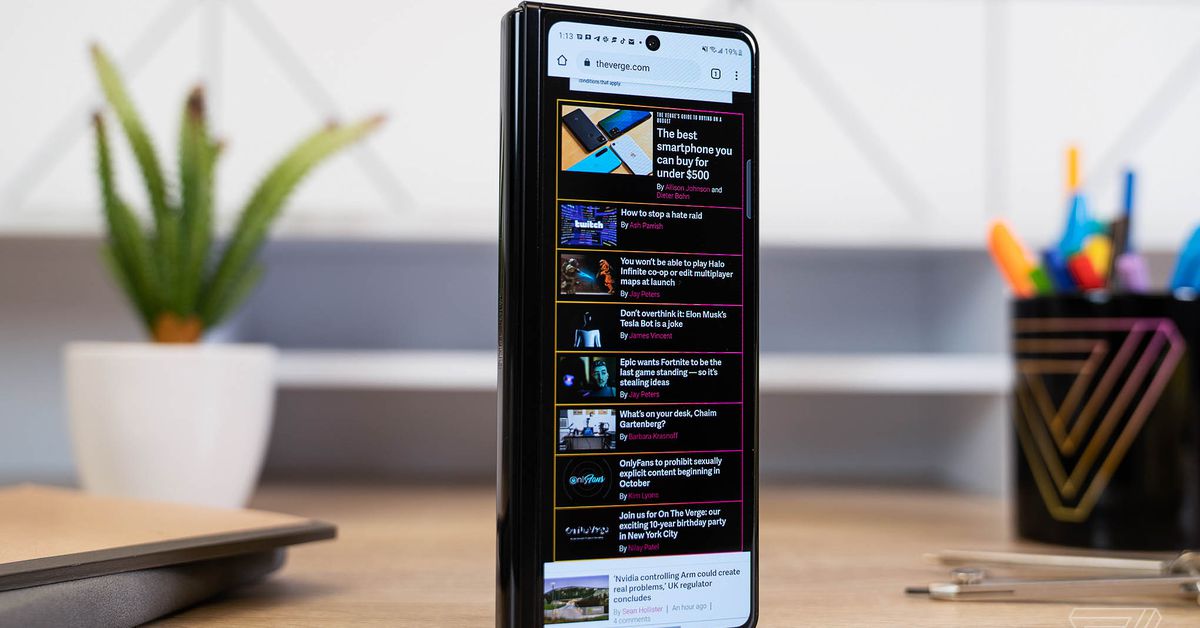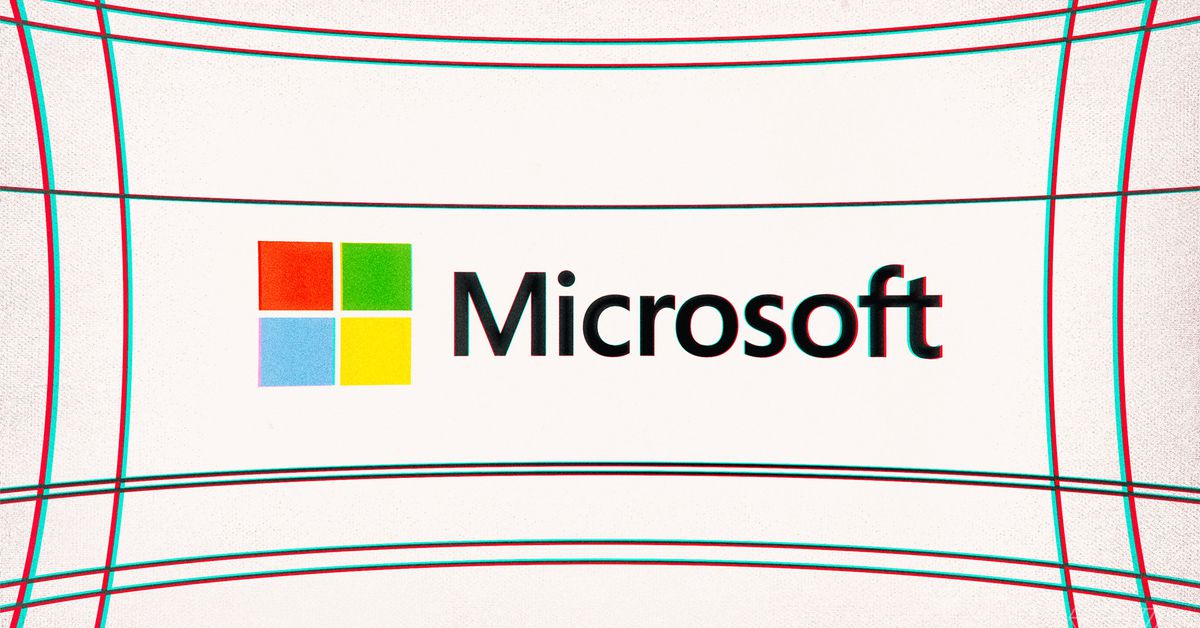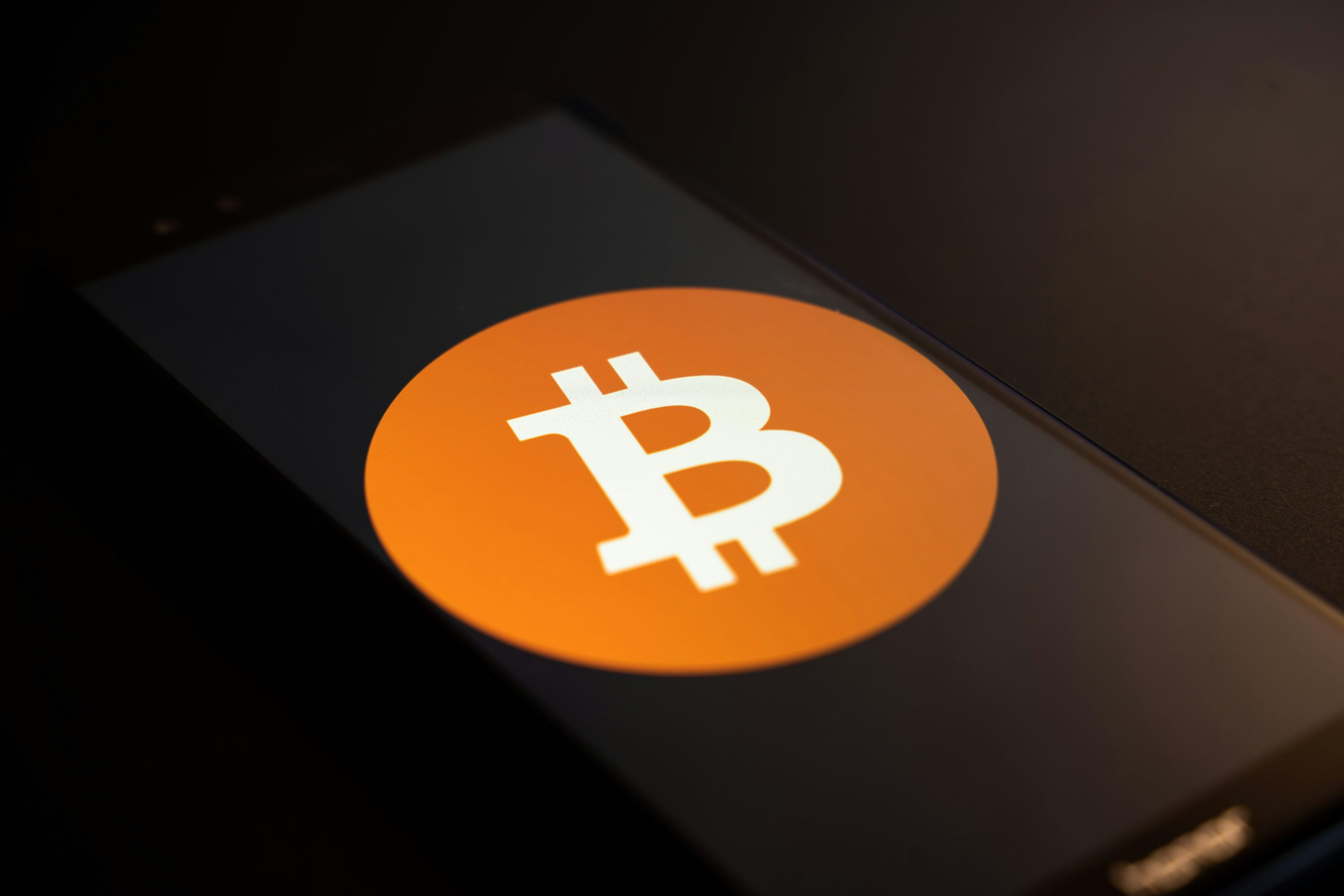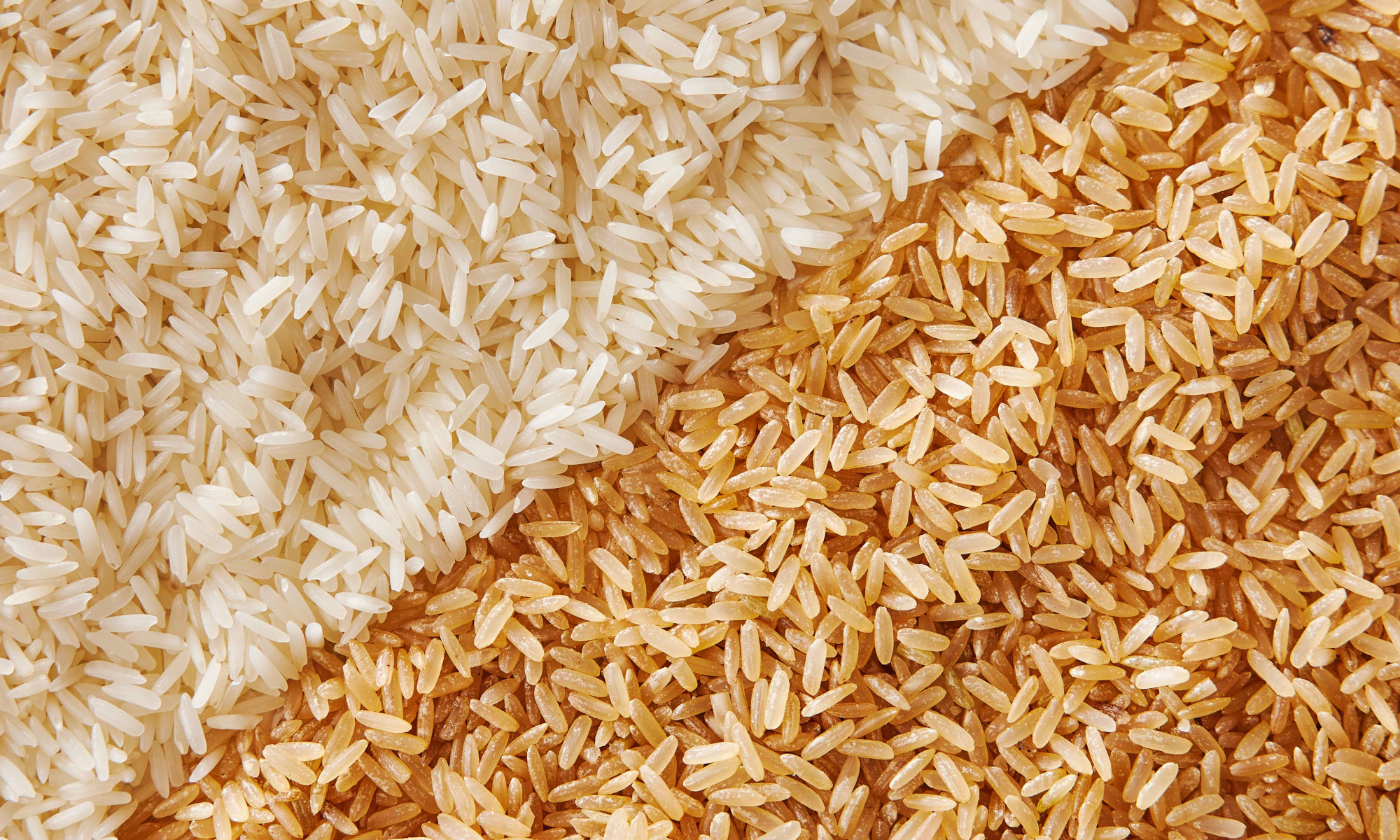Samsung’s all alone at the foldable party
Samsung’s early head start on foldables is paying off. | Photo by Dieter Bohn / The VergeFour years into folding phones and Samsung is the king of the party Continue reading…

/cdn.vox-cdn.com/uploads/chorus_image/image/71224284/dbohn_210820_4722_0003.0.jpg) Samsung’s early head start on foldables is paying off.Photo by Dieter Bohn / The Verge
Samsung’s early head start on foldables is paying off.Photo by Dieter Bohn / The Verge
Four years into folding phones and Samsung is the king of the party
Samsung is throwing itself a party tomorrow with a couple of guests of honor: its foldable phones. We’ll likely see some updated watches and earbuds, but really, it’s a birthday party for the Z Fold and the Z Flip. They’ve been around for years now, but last August was when they really hit their stride with the most mainstream models yet.
We’re probably not going to see any dramatic upgrades or shocking price drops this year because Samsung doesn’t need to produce any of those thrills. It owns the foldable phone category, and it likely will for some time. It’s a foldable party with a guest list of one: Samsung.
Lest we forget, early iterations of the Fold and Flip were a little half-baked: awkward, too expensive, and not durable enough. But they got better. Last year’s Z Flip 3 and Z Fold 3 felt almost normal, with robust water resistance and better usability.
:no_upscale()/cdn.vox-cdn.com/uploads/chorus_asset/file/22801024/dbohn_210819_4722_0001.jpg) The Fold 3 offers a durability rating that allows you to do this kind of thing.Photo by Dieter Bohn / The Verge
The Fold 3 offers a durability rating that allows you to do this kind of thing.Photo by Dieter Bohn / The Verge
Meanwhile, the rest of Samsung’s competitors seem to be stuck on early design iterations or not showing up at all. LG threatened to bring a rollable phone to market shortly before it quit making mobile devices altogether. The 2020 Motorola Razr is overpriced, underwhelming, and overdue for an update. TCL talks a big concept game but has yet to deliver a foldable that anyone can buy.
It’s a different story if you live in China, where Oppo and Huawei offer foldable devices, but they’re limited to that market. And I haven’t forgotten about the Surface Duo (though almost everyone else has — sorry, Dan). But the numbers don’t lie: in 2021 Samsung shipped 10 million-ish foldable devices, with an 87 percent market share. It’s still a tiny piece of the overall smartphone market, but it’s definitely something to celebrate if you’re Samsung.
Anyway, why Samsung? It’s a company that has leveraged its unique position to take the foldable experiment as far as it has. For one, it could afford to fail. The first first Fold was an unmitigated disaster, and the product that Samsung finally shipped was only a bit better. Launching, and then unlaunching, then relaunching an experimental, niche device ain’t cheap. Samsung apparently sells enough refrigerators to underwrite this kind of thing — a smaller company like TCL probably can’t take the same sorts of risks.
Samsung, as a company, also has the right ethos to lead the way in foldables. You won’t see Apple launching a phone with an experimental new form factor and shaky long-term prospects. It would rather get on board when there’s a sure thing. Google just figured out how to make a flagship phone that doesn’t fold and seems to be in no hurry to launch one that does. Samsung is willing to bet on something new and, most importantly, stick with it through the early growing pains. And hey, at least none of the early foldables were prone to catching fire.
:no_upscale()/cdn.vox-cdn.com/uploads/chorus_asset/file/22790768/dseifert_4711_samsung_z_flip_3_5.jpg) The Z Flip 3 is a folding phone priced like a mainstream flagship.Photo by Dan Seifert / The Verge
The Z Flip 3 is a folding phone priced like a mainstream flagship.Photo by Dan Seifert / The Verge
All signs point to the Z Fold and Z Flip 4 being minor, unexciting updates over their predecessors. And really, that’s to be expected. The company has just started to dial in the recipe for a mainstream foldable phone. Why overhaul it now?
Samsung’s early, sometimes ugly head start means it can afford to coast a bit now. If and when competitors start to emerge over the next couple of years on a global scale, they’ll have to suffer through those awkward first couple of iterations, too. It’s a new product category. There’s no playbook on how to build a good folding phone like there is for the classic slab-style phone. The approach that Samsung took isn’t the only way to go about it, but it is the best way to get ahead while your competitors are all back at the starting line.
It’s not always going to be so lonely. Maybe Apple will join in a few years — claiming that it invented folding phones all on its own, naturally. There’s certainly room for Google, whenever it shows up, or whichever company can figure out how to make a foldable that costs less than $1,000. But for now, go ahead and party like it’s your birthday, Samsung.

 FrankLin
FrankLin 
































